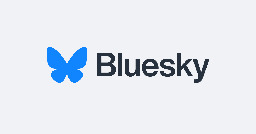Bluesky's Moderation Architecture | Bluesky


docs.bsky.app
Today, we’re releasing an open labeling system on Bluesky. “Labeling” is a key part of moderation; it is a system for marking content that may need to be hidden, blurred, taken down, or annotated in applications. Labeling is how a lot of centralized moderation works under the hood, but nobody has ever opened it up for anyone to contribute. By building an open source labeling system, our goal is to empower developers, organizations, and users to actively participate in shaping the future of moderation.
In this post, we’ll dive into the details on how labeling and moderation works in the AT Protocol.
I'm still not sure what I think of this to be honest, but I appreciate some more detail on how this is designed to operate on the frontend and the backend, e.g.
(Emphasis mine.)
Haven't gone through the whole spec, but based on interviews with the CEO, the main advantages are the ability for users to move easily from one node to another without losing anything, and better moderation tools.
Since at the moment there's only one BSKY server out there, it'll be hard to verify the first claim.
On the content moderation part, Mike Masnick of TechDirt who is deep into the moderation weeds made it sound like their system is pretty well thought out.
But ultimately, adoption will come down to the community and where they land.
This is something people only do if they're a) a tech bro with too much money or b) looking for financial gain.
Which means that the core infrastructure on Bluesky will be hosted by people who are either hostile to my existence or make money off of people who are hostile to my existence.
I think I'll pass...
What benefits/negatives does blue sky have in comparison to mastodon?
As I understand it so far:
::: spoiler Broad strokes general pros/cons:
Bsky's pros:
Somewhere in-between:
Bsky's negatives (as of writing):
*-Note: Mastodon now has a form of full text search but it must enabled by instance admins and one must opt their account's posts into search visibility for them to show up. This is the result of the years of back & forth over the feature and is an interesting compromise approach. :::
::: spoiler Broad strokes technical pro/cons compared to Mastodon: Bsky/Bluesky's tentative benefits:
Tentative negatives:
Worth noting when compared to Mastodon:
Do you know how many more users are on Mastodon compared to Bluesky? I struggle to find content on Bluesky.
Kind of hard to say given the structure of it. Going off the approximate data from FediDB's charts, we may be looking at around 2 to 3 million more user accounts (around 8 million to 7.25 million), as compared with data from Stats for Bluesky of 5.24 million.
Although I'm not sure how each is measuring this, a better point of comparison may be active users and daily posters. FediDB uses the former, and shows about 940,000 to 920,000 active users, compared to Bluesky's about 220,000~215,000 to 190~195,000 daily posters. The latter is honestly being kind of generous, as going off the data there posting has been declining. Interestingly liking has stayed somewhat higher, hovering between 240,000 to occasional peaks of 260,000 recently.
According to their CEO just before they opened registrations they had 1.6 million monthly users, so maybe if you run the numbers differently it looks better...But the raw stats don't paint a great picture, at least as I read them.
Going off Join Mastodon's servers page (under network health), we see a figure of 942,000 monthly active users, which would suggest Bluesky should arguably have slightly more activity going off the monthly active users figure, but... 🤷♀️
I believe that Bluesky will fail. Which is sad because I feel they are trying to make things better.
The people who wanted to leave Twitter have pretty much left. The ones who are left are going to stay. Bluesky have spent too long living in the weeds, with designing and building, and the momentum has been lost.
I hope I'm wrong. And this is only my opinion.